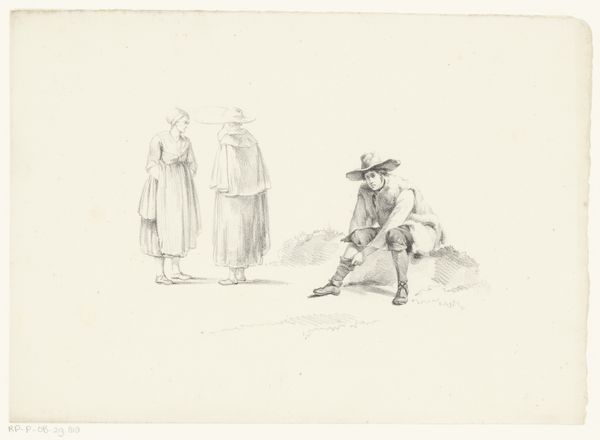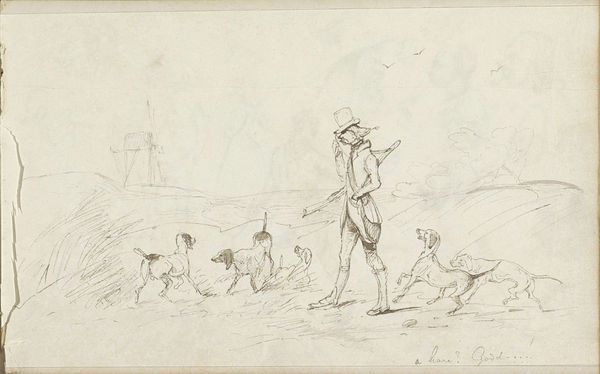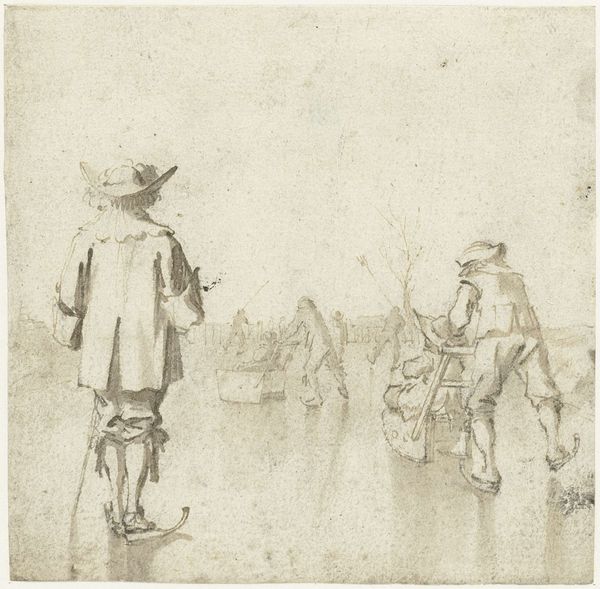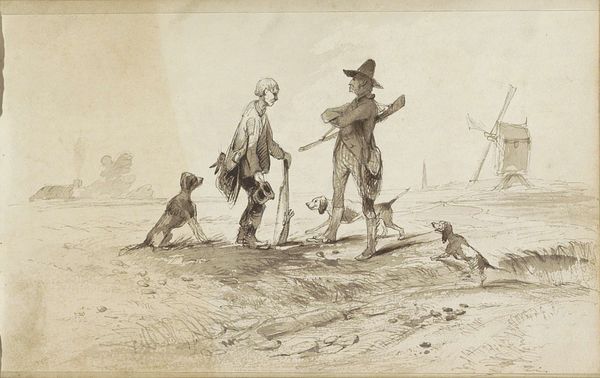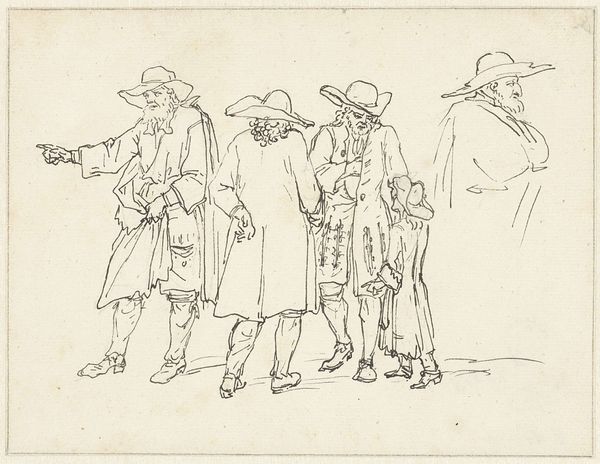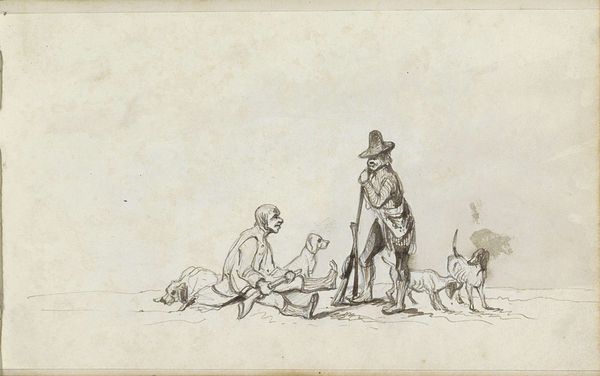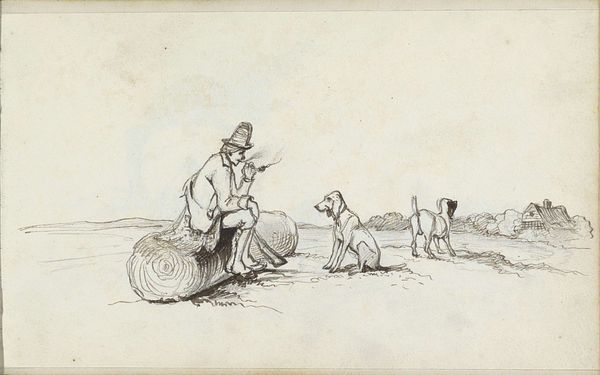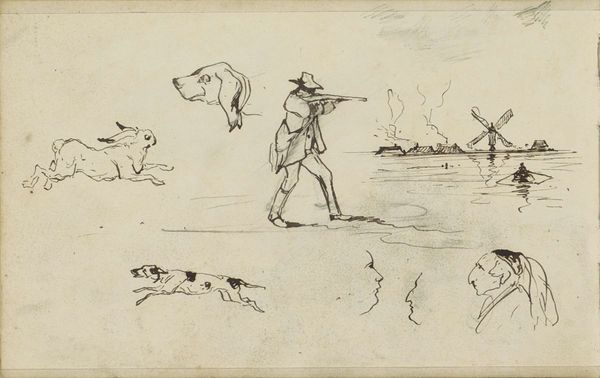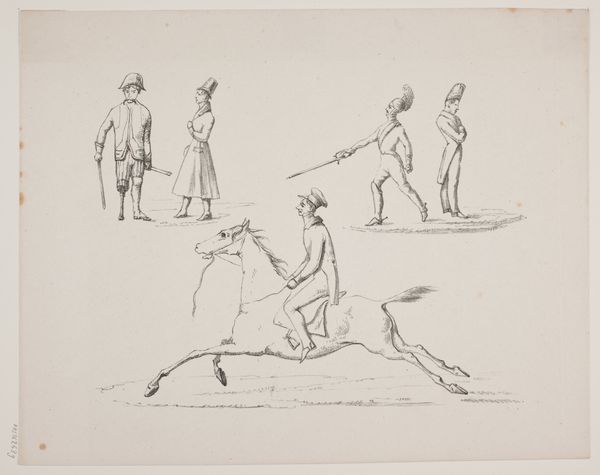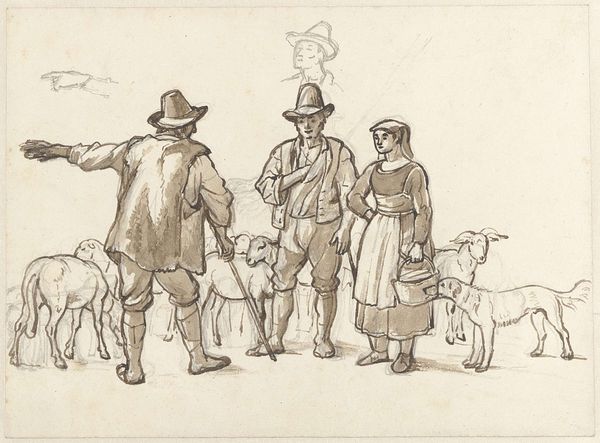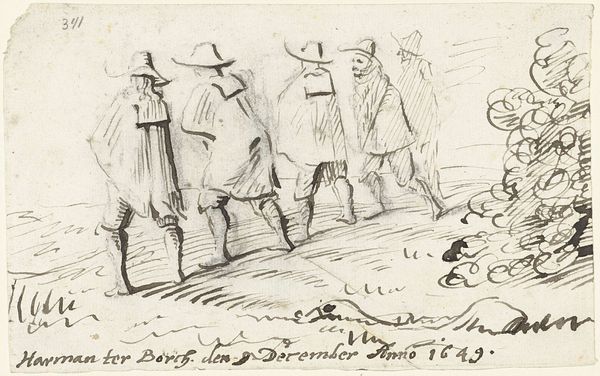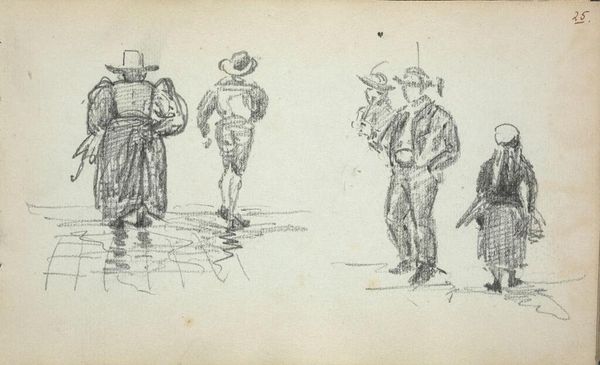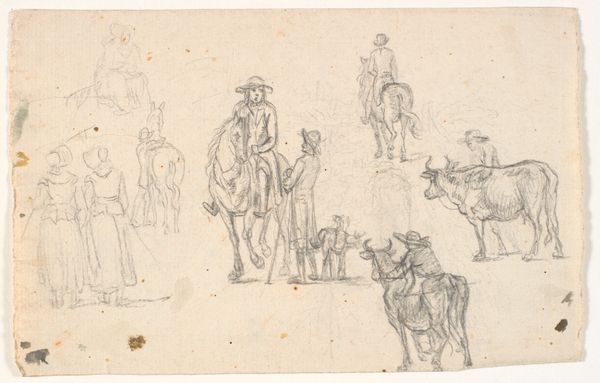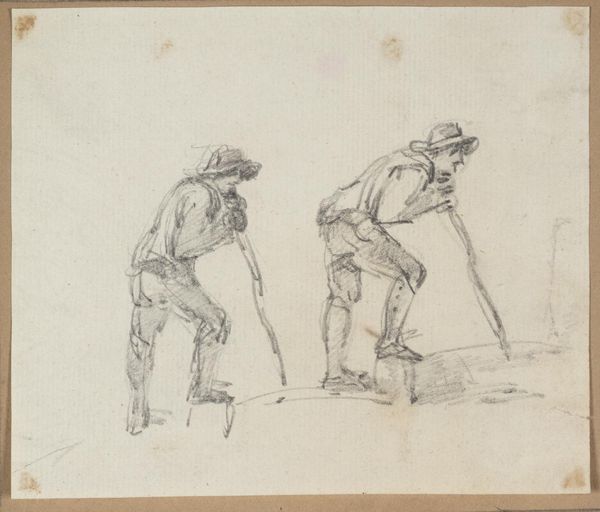
Officier die naar schaatsers staat te kijken, op de rug gezien after 24
0:00
0:00
gerardteriiborch
Rijksmuseum
Dimensions: height 101 mm, width 158 mm
Copyright: Rijks Museum: Open Domain
Editor: Here we have Gerard ter Borch the Younger’s ink drawing on paper, “Officier die naar schaatsers staat te kijken, op de rug gezien,” made around 1648-1660. I'm struck by the contrast between the solitary, darker figure of the officer and the more freely rendered skaters. How do you interpret this work, especially in relation to Dutch Golden Age society? Curator: That's an excellent starting point. Ter Borch’s rendering really encapsulates tensions inherent in Dutch Golden Age society, doesn't it? This period, on the surface, signified prosperity and leisure – evidenced in the skaters’ activities. However, figures like the officer represent a very different reality of military power, class divisions, and perhaps even the control exerted over this newfound "freedom." Notice his stance: separate, observant, and self-contained. Does he seem part of the revelry or removed from it? Editor: He definitely seems separate. Almost like he is watching a performance. I guess I hadn’t thought about the social implications before, just saw it as a genre scene. Curator: Exactly. It’s easy to romanticize these "genre" scenes, but as an activist art historian, I push us to look deeper. The officer’s darker ink rendering against the light sketches also might represent an existing hierarchy, perhaps the remnants of older feudal power structures watching over the "common" person engaging in increasingly acceptable leisure. We see an emerging bourgeois society alongside older forms of power and control. Is he simply enjoying the view or assessing his domain? Editor: I see your point. Maybe it reflects the social hierarchies inherent in Dutch society despite the appearance of collective enjoyment. What a thought-provoking way to look at a seemingly simple scene! Curator: These juxtapositions were constant. Examining them lets us unravel the complex power structures veiled within everyday depictions of the time. It is not a single narrative of freedom, but of controlled expression, subject to class and military power. Editor: Thanks for shining a new light on Ter Borch’s work. I'll definitely remember this nuanced perspective!
Comments
No comments
Be the first to comment and join the conversation on the ultimate creative platform.
